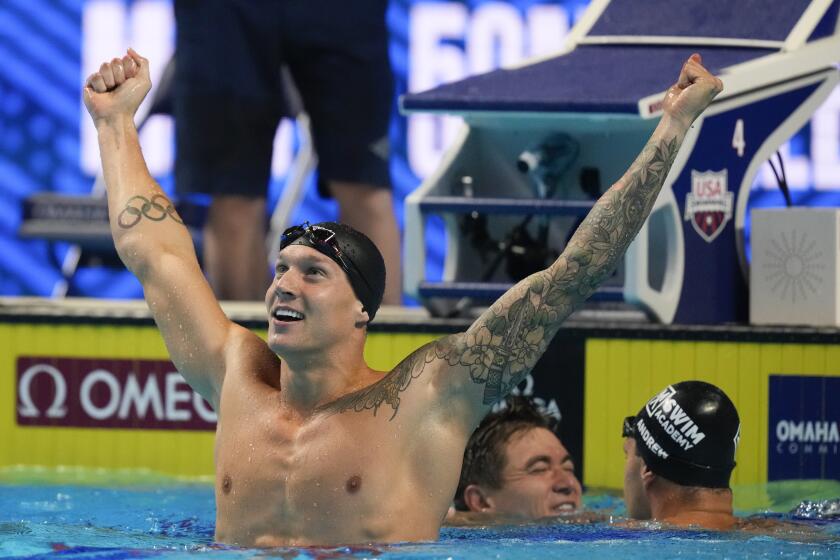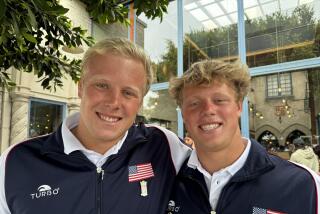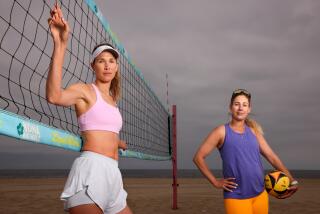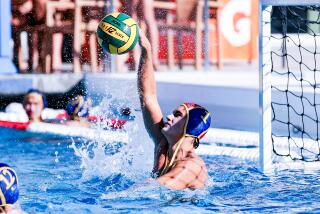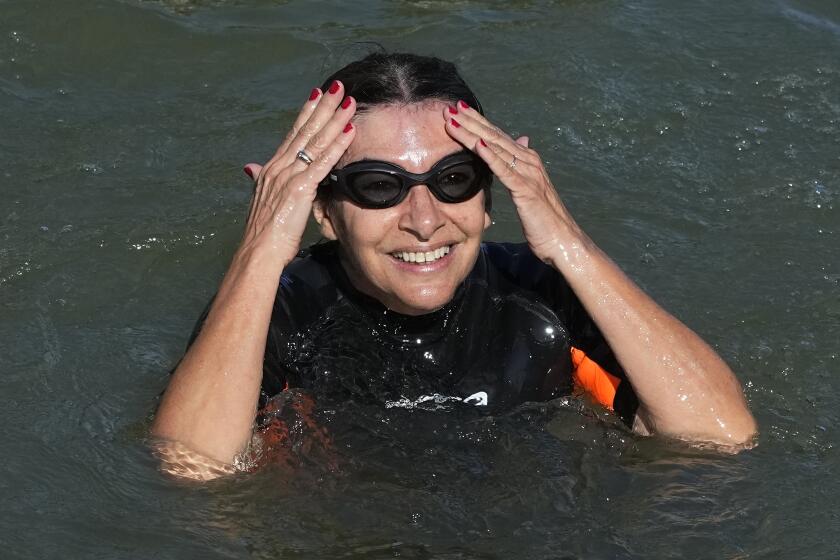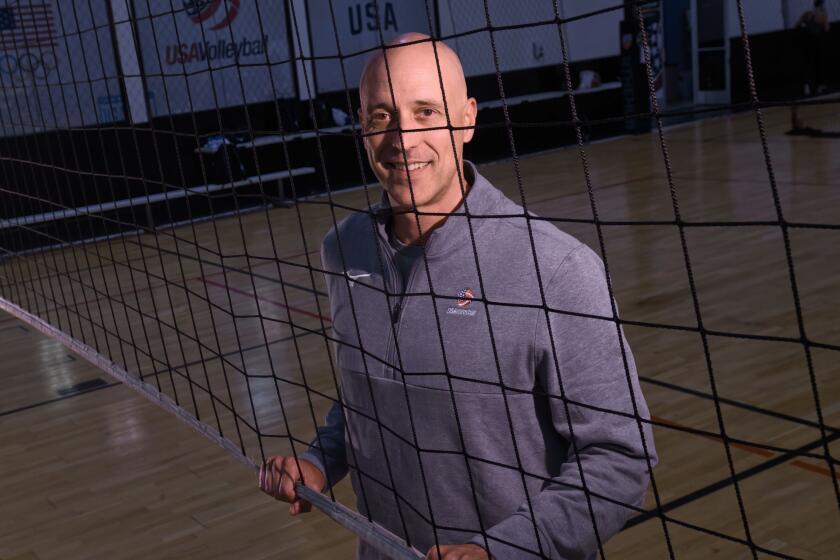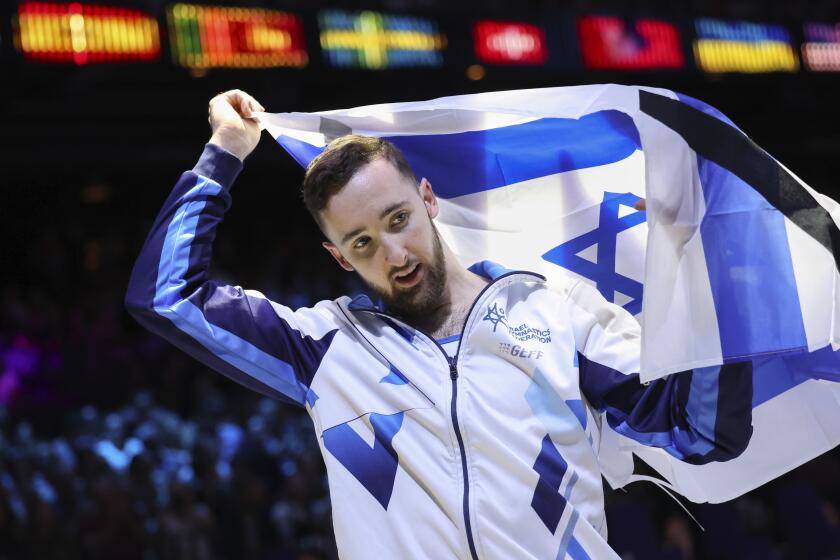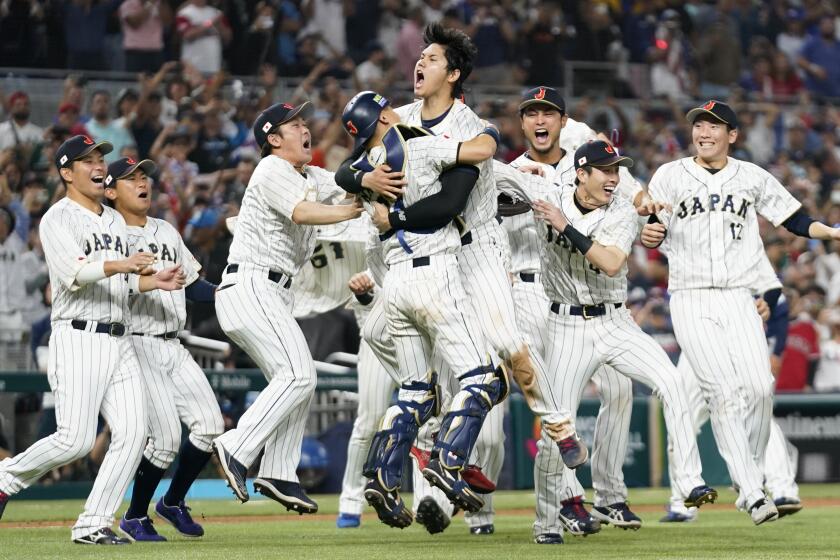For U.S. water polo player Johnny Hooper, adapting to challenges is key to thriving
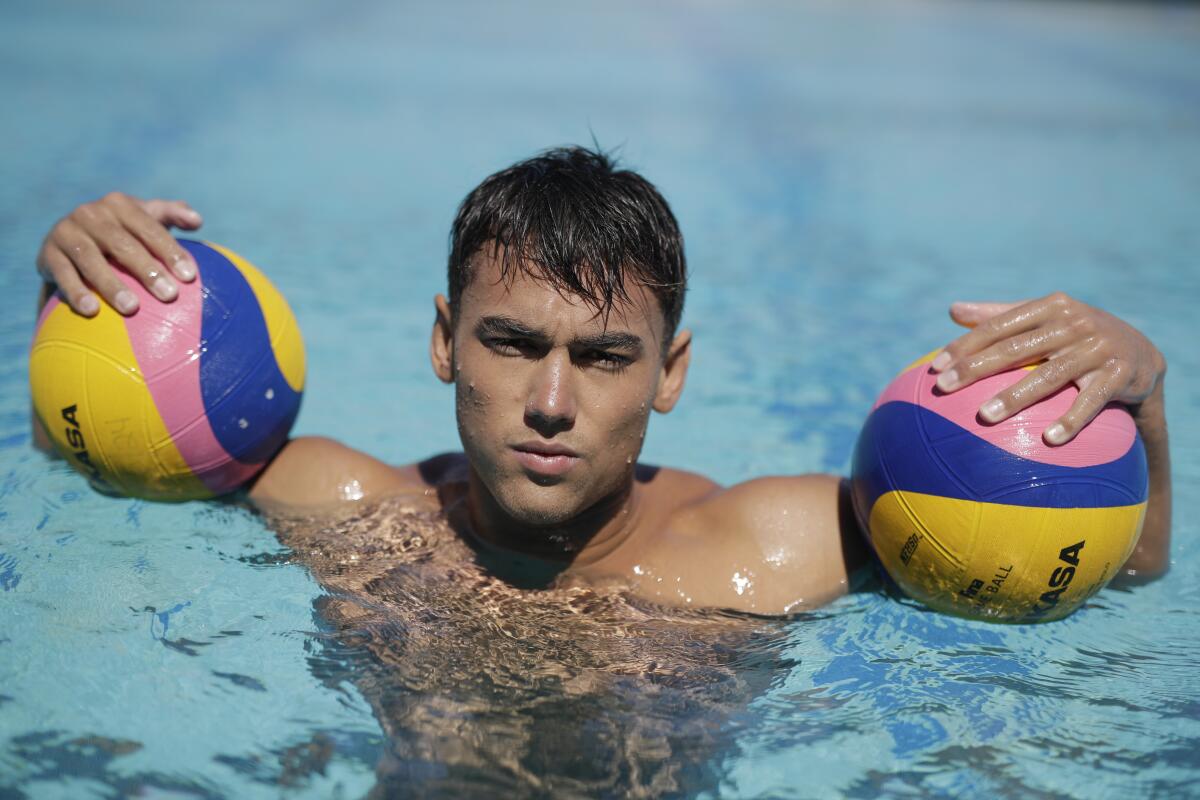
His mother was born in Japan. His grandmother lives about an hour from Tokyo.
So first-time Olympic water polo player Johnny Hooper, who holds dual citizenship in the United States and Japan, was excited about the opportunity to represent the U.S before family and friends at the Tokyo Games.
But with Japan in a state of emergency and no spectators allowed because of COVID-19, Hooper, an attacker, is prepared to compete with them watching from home when the U.S. opens play Sunday against Japan.
In the first Olympics for the U.S. without Michael Phelps since 1996, Caeleb Dressel is positioned to be his natural successor.
“I was looking forward, obviously, to having her in the stands, being her only grandson to play in his first Olympic Games here in Tokyo,” Hooper said of his grandmother during a news conference Friday. “It would have been amazing, but you have to be flexible and adjust. You have to be comfortable being uncomfortable …
“My mom was supposed to come as well, but I told her to actually stay back because I didn’t want her to have to watch the games here in Tokyo. I’d rather her be home and comfortable watching with friends and family.”
Hooper, 24, grew up in Southern California — his father, Gary, is in the Beach Volleyball Hall of Fame — and he developed into one of the nation’s top players at Harvard-Westlake High in Studio City and in college at California. Despite a 6-foot-1 frame that makes him small by major college and international water polo standards, Hooper is a dangerous scorer.
“In general, what keeps me going is being smaller and playing at this level and giving people and kids, the youth, someone to look up to,” he said, adding that he has been able to meld “being sometimes out of the box, but at the same time you have to play within a system.”
In the pool, and as an athlete is general, “you need to be creative in how you’re going to get there,” he said. “For me that was always doing things a little bit differently from the traditional way and it helped me a lot in the long run.”
Center Ben Hallock, making his second Olympic appearance, played with Hooper on youth teams and at Harvard-Westlake, winning several championships. Now they will play together in the Olympics.
Did they ever talk about that possibility in high school?
“In high school we had some conversations like that,” said Hallock, 23, who played at Stanford. “One day we could play together on this stage and how special and how cool it would be.
“Obviously, didn’t know when that day would come, if it would come, but I’m super grateful and happy to have him here and to be here myself.”
More to Read
Go beyond the scoreboard
Get the latest on L.A.'s teams in the daily Sports Report newsletter.
You may occasionally receive promotional content from the Los Angeles Times.

